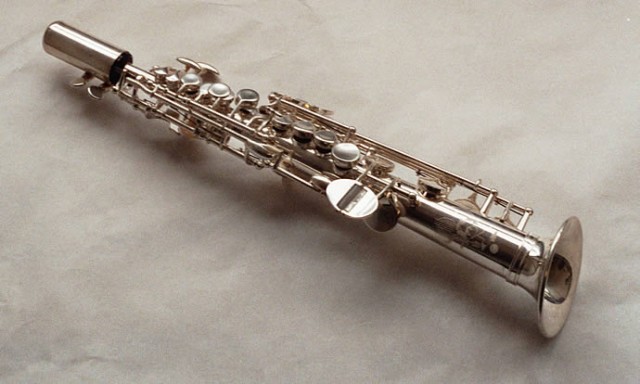Be a Team Player
High school music programs are the places to truly refine yourself as a musician. In such a setting, it's okay to make mistakes and stumble your way up the skill ladder. In fact, this is all necessary in order to grow. It also helps that the sort of mistakes you might make in high school are far less acceptable in later settings. Minor musical errors are fine, of course- you can make a squeak or miss a note and nobody will take it personally. However, playing to your own tune during a piece is never okay. Some people are unable to listen while they play which is bad, as listening is a very important skill to have. In any band, but especially in a concert band, being aware of everyone else around you who is also playing is crucial. Trust in the score's directions, the conductor, yourself and others as you play. Doing so will keep you from sticking out when you shouldn't or playing too subtly at a time when you should come out. In high school programs there is plenty of opportunity to explore listening to others as you play, especially if you are in a first chair soloing position. Playing through a solo, which often times has some form of background playing by other sections, is an especially important time to be aware of the sounds around you. Achieving your perfect pitch depends on this, as your intonation is affected by the rest of the band. Besides this, it is important to continue maintaining your levels. By this I mean simply that you should not, even in a solo, play too loud. You should definitely come out and flourish (depending on the piece), but don't over blow and kill your pitch. In concert pieces particularly, soloing doesn't abruptly happen (unless it's at the start of, and again depending on, the piece). Generally there is some semblance of a smooth transition in the rhythm and dynamics of the music where, given this, you transition with it, flowing into and out of your solo.Generally there are a lot of things to consider when you're playing in a band, but I cannot stress any more how important it is to listen closely and play to others. If everybody in the band plays to their sheets and to others, the band simply comes together. If everybody in the band plays thinking only "if I can't hear myself, I'll just play louder", then the band is doomed to sound terrible. It's very important to remember your place in the band at any one time. You can't play the tuba and expect to have lots of solo time. Similarly, you can't play the oboe and expect to only play harmony. Depending on your instrument and what the sheet of music in front of you is describing to do (and don't forget the conductor, who can make changes to the sheet), play your part. If the piece instructs the saxophone section to play mezzo-piano (mp), play mezzo-piano, because this is the arranger of the piece's way of telling you that there is another section that needs to be louder. For example, looking at a full score in this case you would find that the saxophones are at mezzo-piano while the flutes and clarinets are perhaps at mezzo-forte (mf). This means that while the saxophones back up with a harmony, it is likely that the flutes and clarinets are playing the melody- or at least a part that needs to be heard.
A band is just that. It's a group- a team of individuals. Everyone will have different sounds, but it's finding a way to fuse all of these sounds together into one musical ensemble that takes real effort and talent. Being part of such a team is wonderful, so be sure to play your part well.

No comments:
Post a Comment